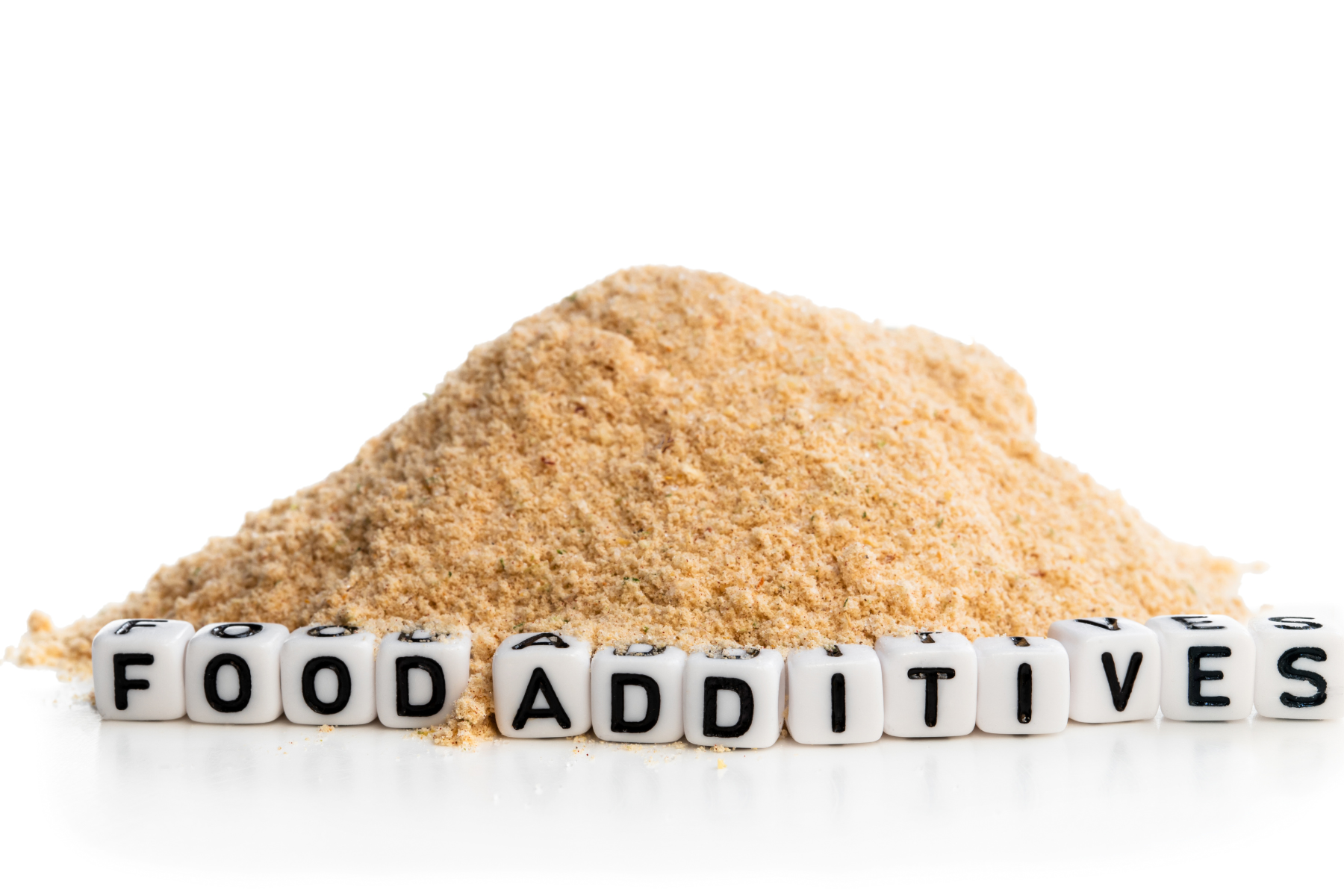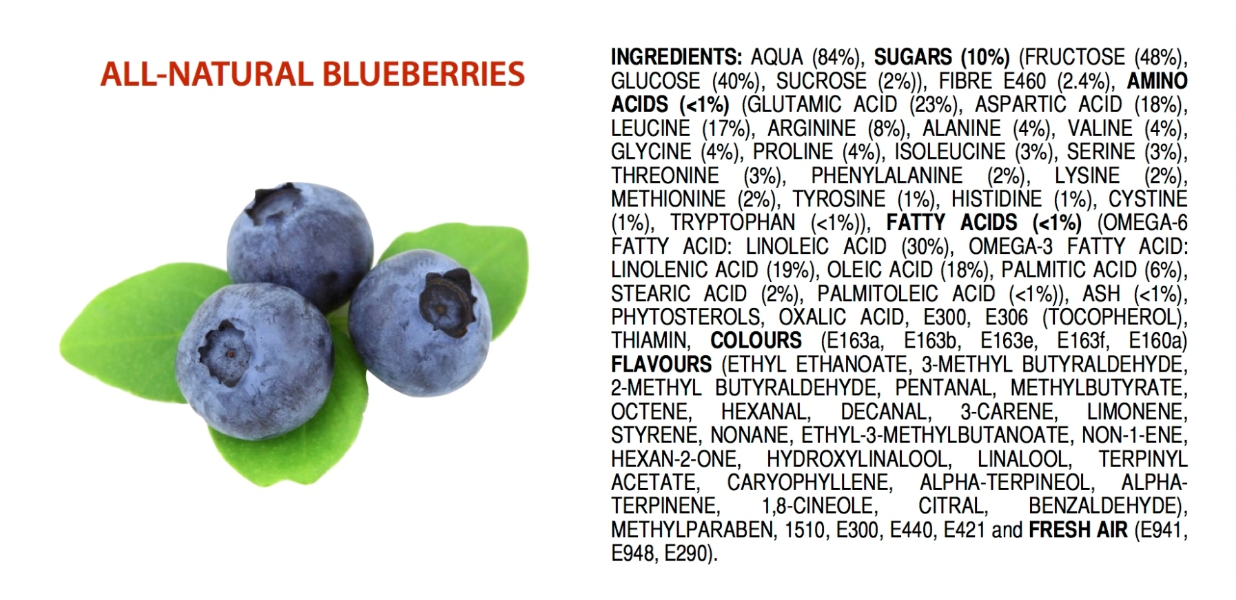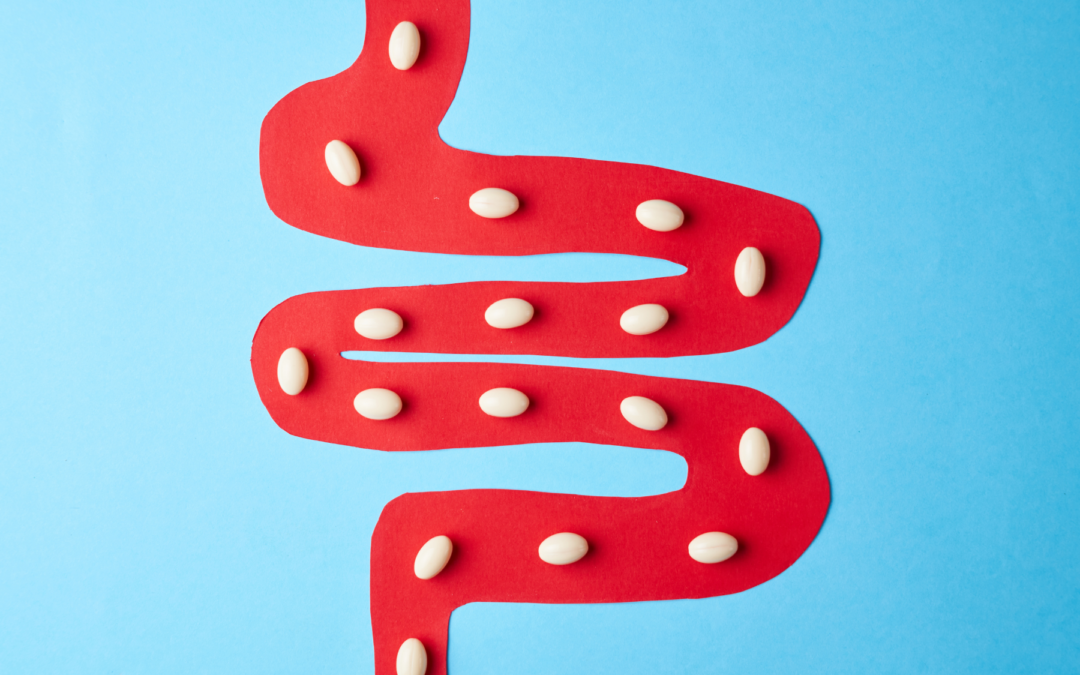Food additives are among dietitans, and every month seems to bring new discussions on their safety.
There is a common fear of “chemicals” in foods, but the truth is that everything we consume is made up of chemicals. This is not something to be afraid of; it’s just science! Take a look at the chemicals found in blueberries:
I think most people would agree that unless you are allergic to blueberries, they are perfectly safe and healthy to eat. There’s a common saying that “You shouldn’t eat anything that you can’t pronounce”. Everything is made up of chemicals. Most of us can’t pronounce most of them, but that tells us nothing about their safety. Also, just because a chemist is able to pronounce these chemicals doesn’t automatically mean that that chemical is safe for the chemist but unsafe for everyone else. That’s not how science works!
So, what are some of the common food additives, and do I need to avoid them?
Sugar alcohols
Sugar alcohols, also known as polyols, are a type of carbohydrate with a similar chemical to sugar.
They are frequently used in foods as sugar substitutes because they provide a similar level of sweetness with fewer calories than regular sugar. Because of this, you will often find these additives on labels that say “sugar-free” or “low-calorie”.
While they are similar in their chemical structure and use to sugar, they are not digested and absorbed well like sugar is.
Some polyols occur naturally in fruits, vegetables, and other foods and others are man-made and added to foods. Some common polyols include erythritol, maltitol, mannitol, and sorbitol.
Sugar alcohols can be used in sweet foods without as much concern for spiking your blood sugars but they are still a carbohydrate. If you have diabetes a good rule of thumb is to count sugar alcohols in your carb counting if you consume 5 or more grams of sugar alcohols. And only count half of the grams as carbs.
Some people seem to be more sensitive than others. Large quantities of sugar alcohols can produce a laxative effect.
MSG
Monosodium glutamate, or MSG, is a flavor enhancer with a specific taste called umami.
It’s a good option for those who are trying to limit their salt intake, as it can enhance the flavor of foods without the use of salt. It can be used as a salt substitute. It occurs naturally in some foods and is a common additive in Asian dishes, frozen foods, condiments, canned soups, processed meats, and fast food.
Some old research has raised concerns about MSG in the past, but this research has been found to be inaccurate.
MSG seems to be safe to consume in reasonable quantities for the majority of people, but a small number of people may experience sensitivities to it and may want to limit it from their diet.
Trans fats
Trans fats can increase LDL cholesterol, aka the bad cholesterol. This puts consumers at a higher risk of heart disease. It also decreases HDL cholesterol, aka the good cholesterol that helps remove cholesterol from the arteries.
You likely won’t see trans fats listed on your food labels. One way they are put into foods is through hydrogenated oils. Hydrogenated oils are those that have been turned from liquid to solid.
Trans fats are an additive that we suggest you avoid whenever possible. Consuming large amounts of animal fats such as fatty steaks, poultry with the skin on, and even baked goods will increase your trans fat intake.
Carrageenan
Carrageenan is naturally occurring and is derived from red seaweed. It is used to improve the texture of foods. It is commonly used in chocolate milk, ice cream, dairy products, salad dressings, soy and almond milk, infant formula, and some meat products.
Several human and animal studies contradict claims of carcinogenicity and show its safety. Claims of inflammation and other health conditions are based on flawed studies in which subjects were given forms of carrageenan that are not used in foods or beverages, plus given in high doses that are not comparable to what someone would actually consume.
The Bottom Line
These are just some food additives out on the market. It is important to remember that the dose makes the poison.
Some people may experience symptoms after ingesting certain food additives, and other people may be completely fine. There’s not a lot of risk in consuming foods that you tolerate well.
If you don’t notice any negative side effects, then you probably don’t need to avoid it. Some people can tolerate a certain additive in small doses but will feel unwell when consuming a larger quantity. Everyone is different.
Overall, you can trust that the foods you are consuming are safe, but if you notice that certain foods cause you to feel unwell, then try avoiding that food or additive and see if it makes a difference!








